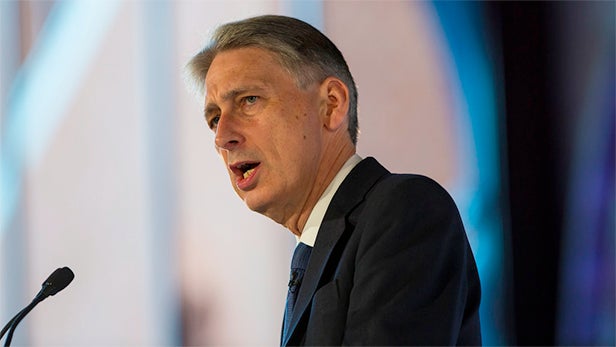Budget 2017: UK Gov promises millions for 5G, driverless cars and broadband

The UK Government has announced massive funding for a wide range of future-facing technologies, including 5G internet, driverless cars, and fibre broadband connections.
Speaking during today’s budget announcement, Chancellor Philip Hammond outlined how more than £500 million would be allocated to tech from the National Productivity Investment Fund. The fund was created in the 2016 autumn statement to promote innovation in the UK’s tech sector.
There’ll be £300 million to support research talent, part of which will be spent on funding 1,000 PhD students in STEM subjects. Funds are also being committed to driverless car research, as well as £16 million that will be allocated for a “5G mobile technology hub”, according to Hammond. The Chancellor has also earmarked £200 million to help local projects roll out fibre broadband in underserved areas.
https://twitter.com/statuses/839463801497997312
It’s no surprise that the UK Government is looking to spend big on 5G infrastructure, with global estimates putting the next-generation of mobile internet as arriving as soon as 2020. Fortunately, the outlook for the UK is positive, at least according to Ben Timmons, Senior Director of Business Development of Qualcomm Europe, a leading 5G player. Last month, we asked Timmons whether the UK was prepared for the rollout of 5G technology, and he said:
“We’re not bad. Within Europe, the availability of [5G] spectrum is going to be critical. There’s a European decision made about two frequency bands 3.5GHz (3.4-3.8) and then the 700MHz as being target bands for 5G. Ofcom have consulted on the 3.5GHz so we’re expecting there to be that critical 5G band should become available in the UK. They are engaged on it, they’re interested, but good progress so far.”
“For the UK, it’s reasonably positive,” he added.
The boost for 5G funding didn’t go down without criticism, mind; some questioned whether enough work was being done on existing technology infrastructure:
https://twitter.com/statuses/839466332290711552
https://twitter.com/statuses/839466195896176645
https://twitter.com/statuses/839467706839597056
Part of the problem with investing in 5G is that the future of the technology is uncertain; 5G is simply a buzzword used to describe next-generation internet speeds, but it’s still not clear how we’re going to get there. But when we do, it’ll be blisteringly fast – Samsung has already achieved 7.5Gbps speeds in testing, while Nokia claims an even loftier 10Gbps.
For reference, the fastest smartphone modem right now is Qualcomm’s Snapdragon X20, which offers speeds of 1.2Gbps. That’s equal to 0.15 Gigabytes of data, which is in turn equal to 150 Megabytes. The BBC says that, on average, 60-minute programs downloaded in high quality (1,500kbps encoding) take up about 630MB of space. So with a 1.2Gbps download speed, you’d expect to download that show in just over four seconds. Magical, right?
“We think that 5G will have an impact far beyond [3G],” said Timmons. “It’s not going to be about personal communication any more. It’s much more of a transformational technology that will have a huge impact on an enormous range of industries.”
Related: Death by Driverless Car – What happens when driverless cars kill?
Watch: LG G6 Hands-on
What do you think of the Chancellor’s announcements? Let us know in the comments.


